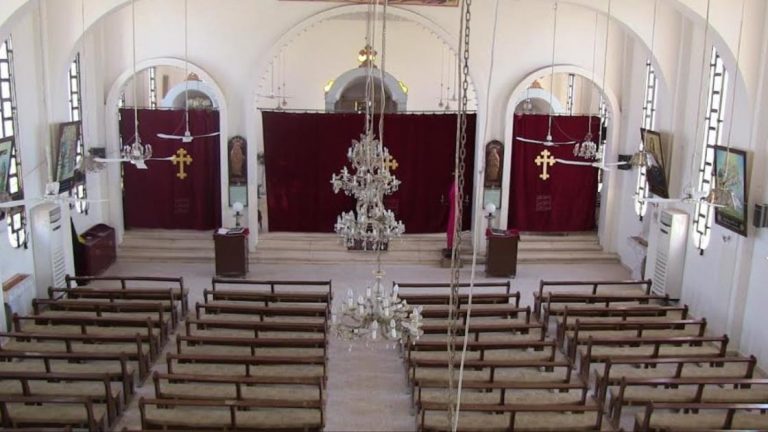The L’Orient-Le Jour newspaper has published a report on the situation for Christians in the northeastern regions of Syria, which is controlled by Kurdish forces. Religious minorities — especially Assyrians — live under sustained pressure exerted by the Kurdish forces and their allies, starting with the closure of schools and even arrests and being thrown in prison.
The report describes how Syrian Kurds have exploited their war against the Islamic State (ISIS) to expand in eastern Syria and establish a de-facto self-ruled area, in the face of the regime, to whom they are linked with contradictory relations. The Syrian Democratic Forces (SDF), which are majority Kurdish and backed by Washington, have been able to take control of the game with the aim of establishing an independent Greater Rojava along the Syrian-Turkish border.
However, the severity of the tension among religious minorities and the de-facto authorities has recently intensified, especially in the al-Jazira region — and especially after the issuing of a number of decisions this summer, which various churches considered void, especially those concerned with the administration of private schools. Since then, the de-facto authorities have targeted their Assyrian rivals.
Last August, the de-facto authorities closed a number of educational institutions, before locals and religious leaders expressed their indignation and their refusal to comply with these laws and decisions. After they took over about one hundred government schools to impose their ideological curricula, the Kurds had hoped for success in bending to their will the Christian schools in Qamishli, al-Darbasiya and al-Malakiya. The Syriac Union Party, which is part of a Kurdish alliance, headed by the Democratic Union Party, which Ankara considered to be the Syrian branch of the Kurdistan Workers’ Party, was sent to impose its teachers and curricula on the Christian schools, which accept children of all religions. Bishop of the Syriac Catholic Church in Hasakeh, Benham Hindou, announced, “From now on, they don't want us to accept Kurdish children in our schools, saying that they will go to their own schools. The latest decree says that any citizen in the areas under their rule will be subject to a fine of one million Syrian pounds and a prison sentence of three months if they send their child to a school which follows the government curriculum. However we refuse to submit to their orders and will continue to resist Kurdish rule. They want to steal our land, our language, and our culture. In short, they want to expel us!”
The report reveals how a number of opposition voices have been raised in opposition to the “hostile” actions of the de-facto authorities, but were quickly repressed by force. The Assyrian thinker and organizer in the Syriac education system, Eissa Rashid Eissa, was beaten in September by Sutoro forces — an Assyrian police force which was integrated into the ranks of the Kurdish Asayish police. The school director in al-Malakiya, Charbel Michel Saliba, was also arrested in October and was relased a few hours later. A day before that, police took the Syrian regime opponent and activist Suleiman Youssef without giving any reasons for the arrest. His son Sirin Youssef said that about 8:00pm on Sunday evening, three pickup trucks stopped in front of their door and a number of Sutoro police got out and started to search the home, and then took his father with them as well as their laptops and phones. The other son, Emerson, a refugee in Germany, said on his Facebook page that for years their father, in his writings, opposed the Syriac and Kurdish parties and refused to live under their yoke, but that this was the first time that they attacked their house and took him with them. The journalist Suleiman Youssef also openly criticized the closure of the Assyrian schools in the area without fear of the de-facto authorities there. Sirin said: “We have many supporters, but many are afraid to criticize the authorities there.” Meanwhile the schools were temporarily reopened, with their fate suspended, pending a decision that will be made at the upcoming talks in a council which Bishop Hindou arranged with authorities. The arbitrary detention of Suleiman Youssef has added more fuel to the fire. Late in the evening, the Assyrian journalist was released without any explanation.
Emerson, the journalist’s son, said that most Christians in the area do not agree with the actions of the Syriac party and they consider it to be a group of traitors who are working against the sect’s interests, even if they claim the opposite. Christians do not want the Kurds or the regime because they have one approach. For his part, Bishop Hindou accused Kurdish forces of wanting to subjugate all local residents at any cost and that this behavior has been ongoing for a long time ago. In the area which the Kurds control, all sects and minorities had coexisted peacefully for many years.
This article was translated and edited by The Syrian Observer. Responsibility for the information and views set out in this article lies entirely with the author.


